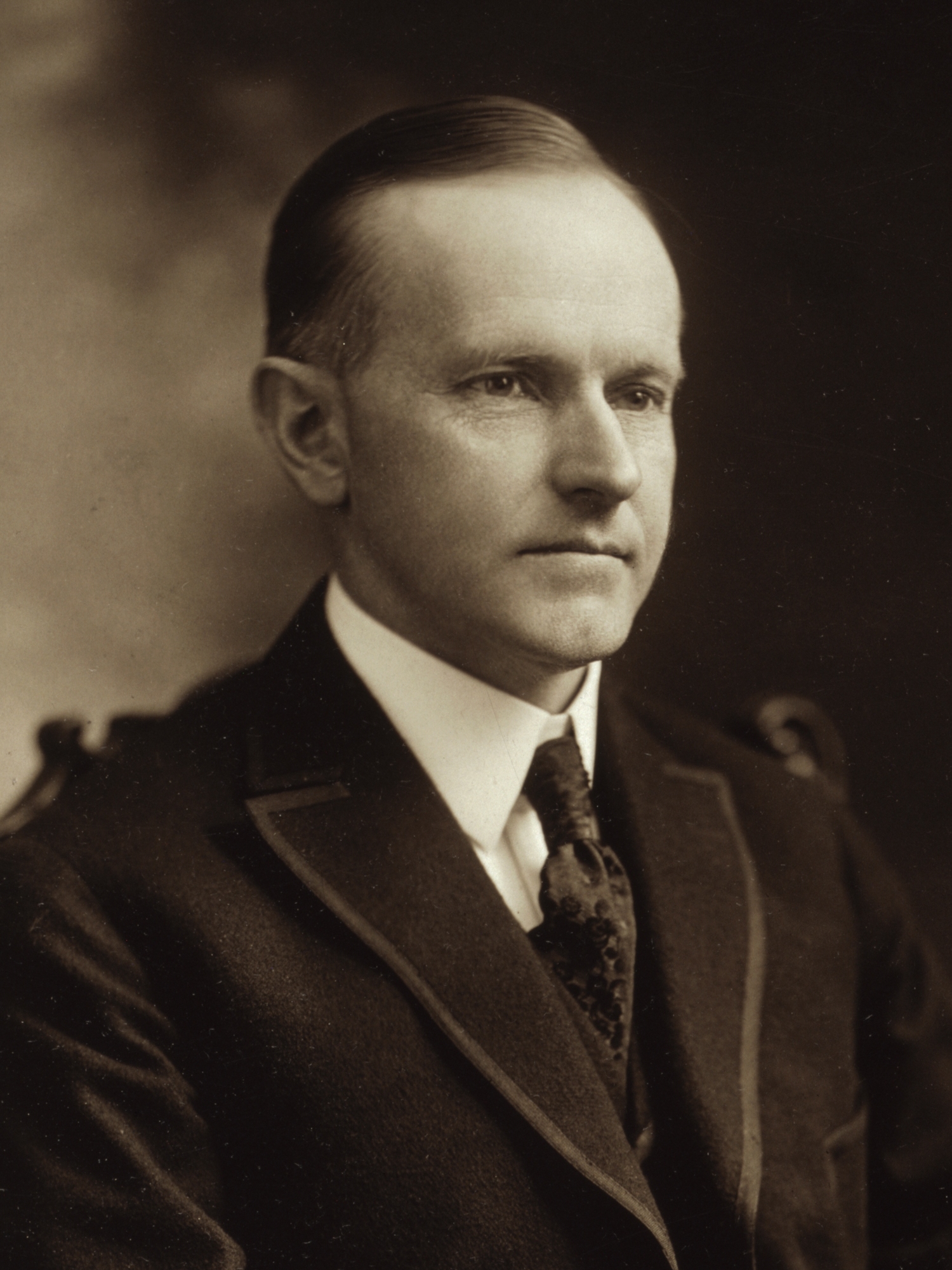1920s, Authority and Religious Liberty (1924)
Calvin Coolidge: Frases en inglés
1920s, America and the War (1920)
1920s, Authority and Religious Liberty (1924)
1920s, Whose Country Is This? (1921)
1920s, Toleration and Liberalism (1925)
1920s, Ways to Peace (1926)
1920s, Second State of the Union Address (1924)
1920s, America and the War (1920)
Speech on Armistice Day in Washington (11 November 1928), quoted in The Times (12 December 1928), p. 11.
1920s
1920s, Law and Order (1920)
1920s, Second State of the Union Address (1924)
1920s, Ordered Liberty and World Peace (1924)
1920s, Whose Country Is This? (1921)
1920s, Authority and Religious Liberty (1924)
1920s, Speech on the Anniversary of the Declaration of Independence (1926)
1920s, The Democracy of Sports (1924)
1920s, The Democracy of Sports (1924)
To Secret Service agent Edmund Starling, as quoted in The Forgotten Depression: 1921: The Crash That Cured Itself https://books.google.com/books?id=1PdtAwAAQBAJ&printsec=frontcover&dq=%22+Well,+they%E2%80%99re+going+to+elect+that+Superman+Hoover,+and+he%E2%80%99s+going+to+have+some+trouble.+He%E2%80%99s+going+to+have+to+spend+money,+but+it+won%E2%80%99t+be+enough.+Then+the+Democrats+will+come+in.+But+they+don%E2%80%99t+know+anything+about+money.%22&hl=en&sa=X&ved=0ahUKEwiz78rvs-3MAhVG8j4KHYm9AxAQ6AEIKjAC#v=onepage&q=%22know%20anything%20about%20money%22&f=false (2014), by James Grant
From a speech https://coolidgefoundation.org/resources/early-speeches-1890-1918-17/ delivered on Bunker Hill Day (17 June 1918).
1910s, Speech on Bunker Hill Day (17 June 1918)
1920s, Second State of the Union Address (1924)
1920s, The Genius of America (1924)
“I feel I no longer fit in with these times.”
To a friend, shortly before Coolidge's death, as quoted in Coolidge: An American Enigma (1998), by Robert Sobel, Regnery Publishing, p. 410.
1930s
1920s, Second State of the Union Address (1924)
1920s, Freedom and its Obligations (1924)
1920s, Speech on the Anniversary of the Declaration of Independence (1926)
1920s, Toleration and Liberalism (1925)
1920s, Address at the Black Hills (1927)
1920s, The Reign of Law (1925)
1920s, Speech on the Anniversary of the Declaration of Independence (1926)
1920s, The Press Under a Free Government (1925)
